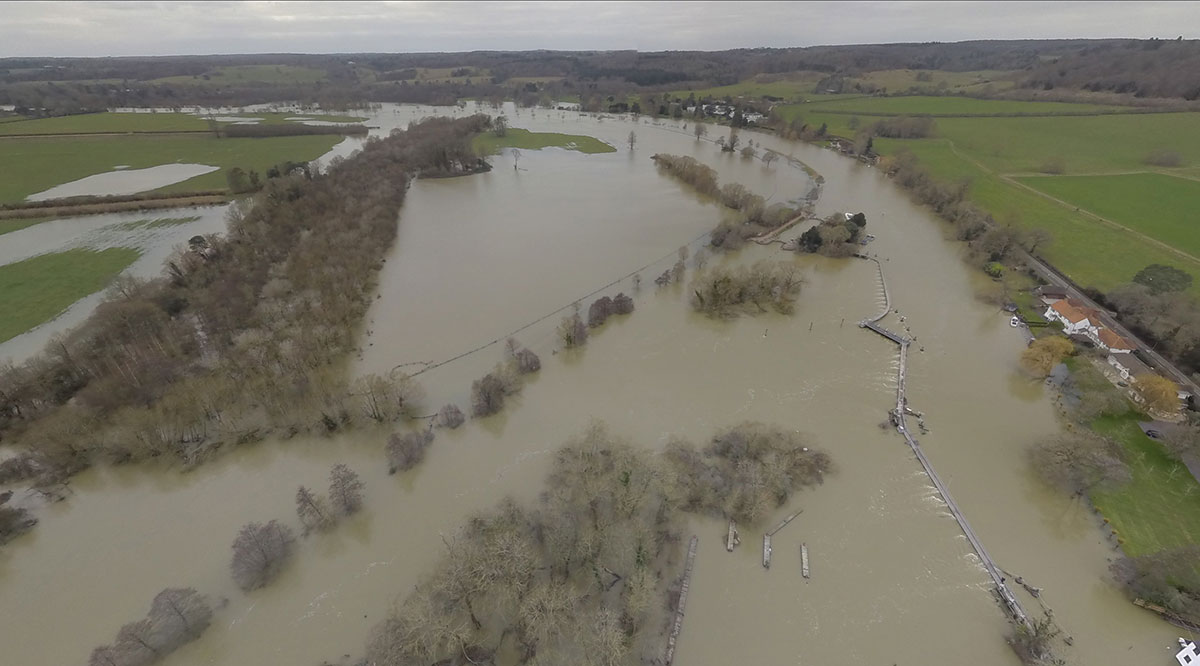Fixing a hole where the rain gets in

By Kate Oldridge
Searching for a metaphor for the flooding that has plagued Henley this past week and its relation to the climate and nature emergency, I took a punt and asked ChatGPT. Here’s roughly what it said:
“Addressing a flood is like quickly mopping up spilled water in your kitchen—it’s visible, urgent, and everyone pitches in. Climate change, on the other hand, is more like maintaining a leaky roof; it requires ongoing effort to fix the structure, even though the damage isn’t immediately apparent.”
Score one for AI. The floods we have seen have shown that we have an incredible ability as a community to come together in times of crisis. Friends and neighbours have rallied to assist those trapped in their homes, and to help business owners whose premises have become inundated.
This is the mopping up.
But the roof is very much still leaking and needs urgent attention. The world is currently on track for a 2.7°C warming, a level which is not compatible with any kind of civilised society, and threatens the very fabric of our existence as a human species.
Dr Helen Hooker, a hydrologist from Reading University, says that climate change means that we will suffer repeated flooding that disrupts lives and livelihoods if action is not taken.
“Adapting through measures like improved stormwater management, flood-proofing buildings, creating community warning systems, and updating planning policies will be crucial to ensure Henley’s resilience and protect what we value,” she says.
To borrow from King Charles, we need to put ourselves on a warlike footing to tackle the climate and nature crisis. Not just in terms of adapting to our new normal, but ultimately to mitigate against the worst effects of the emergency – to stem the tide. This means changing the way we eat, grow our food, shop, manage our money, produce energy, heat our homes, and travel.
These are fundamental shifts in human behaviour. They can seem daunting, but unless we make these transformational changes and show politicians and policymakers that we are ready to embrace them quickly, our future is bleak.
Let’s Do It
This will require a Herculean effort, the likes of which we last saw in the Second World War when entire communities rallied together, with individuals contributing through rationing, victory gardens, and volunteer work.
As Rob Hopkins, founder of the movement in which Greener Henley has its roots, says:
“If we wait for the governments, it’ll be too little, too late; if we act as individuals, it’ll be too little; but if we act as communities, it might just be enough, just in time”.
So what’s stopping us?
Local residents this week readily engaged in post-flooding clean-up due to the immediate and visible nature of the crisis, evoking empathy and urgency.
However, addressing climate change and ecological collapse requires sustained, long-term efforts. Just as the crisis is accelerating faster than scientists have predicted, so too the response must be faster. We need our community to come together with the same indomitable mopping-up spirit that we have seen this week, but to fix the roof.
Get involved
Contact [email protected]. Have a browse here as to how you can get involved – there is something for everyone.



